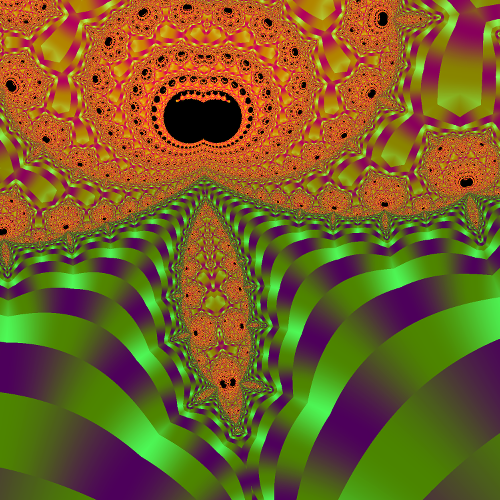結果
| 問題 | No.582 キャンディー・ボックス3 |
| コンテスト | |
| ユーザー |
 koyumeishi koyumeishi
|
| 提出日時 | 2017-10-27 23:38:48 |
| 言語 | C++14 (gcc 15.2.0 + boost 1.89.0) |
| 結果 |
AC
|
| 実行時間 | 2 ms / 2,000 ms |
| コード長 | 5,070 bytes |
| 記録 | |
| コンパイル時間 | 1,518 ms |
| コンパイル使用メモリ | 132,908 KB |
| 実行使用メモリ | 5,248 KB |
| 最終ジャッジ日時 | 2024-11-22 10:55:14 |
| 合計ジャッジ時間 | 2,223 ms |
|
ジャッジサーバーID (参考情報) |
judge4 / judge1 |
(要ログイン)
| ファイルパターン | 結果 |
|---|---|
| sample | AC * 3 |
| other | AC * 17 |
ソースコード
#include <iostream>
#include <vector>
#include <cstdio>
#include <sstream>
#include <map>
#include <string>
#include <algorithm>
#include <queue>
#include <cmath>
#include <functional>
#include <set>
#include <ctime>
#include <random>
#include <chrono>
#include <cassert>
#include <tuple>
#include <utility>
using namespace std;
namespace {
using Integer = long long; //__int128;
template<class T, class S> istream& operator >> (istream& is, pair<T,S>& p){return is >> p.first >> p.second;}
template<class T> istream& operator >> (istream& is, vector<T>& vec){for(T& val: vec) is >> val; return is;}
template<class T> istream& operator , (istream& is, T& val){ return is >> val;}
template<class T, class S> ostream& operator << (ostream& os, const pair<T,S>& p){return os << p.first << " " << p.second;}
template<class T> ostream& operator << (ostream& os, const vector<T>& vec){for(size_t i=0; i<vec.size(); i++) os << vec[i] << (i==vec.size()-1?"":" "); return os;}
template<class T> ostream& operator , (ostream& os, const T& val){ return os << " " << val;}
template<class H> void print(const H& head){ cout << head; }
template<class H, class ... T> void print(const H& head, const T& ... tail){ cout << head << " "; print(tail...); }
template<class ... T> void println(const T& ... values){ print(values...); cout << endl; }
template<class H> void eprint(const H& head){ cerr << head; }
template<class H, class ... T> void eprint(const H& head, const T& ... tail){ cerr << head << " "; eprint(tail...); }
template<class ... T> void eprintln(const T& ... values){ eprint(values...); cerr << endl; }
class range{ Integer start_, end_, step_; public: struct range_iterator{ Integer val, step_; range_iterator(Integer v, Integer step) : val(v), step_(step) {} Integer operator * (){return val;} void operator ++ (){val += step_;} bool operator != (range_iterator& x){return step_ > 0 ? val < x.val : val > x.val;} }; range(Integer len) : start_(0), end_(len), step_(1) {} range(Integer start, Integer end) : start_(start), end_(end), step_(1) {} range(Integer start, Integer end, Integer step) : start_(start), end_(end), step_(step) {} range_iterator begin(){ return range_iterator(start_, step_); } range_iterator end(){ return range_iterator( end_, step_); } };
inline string operator "" _s (const char* str, size_t size){ return move(string(str)); }
constexpr Integer my_pow(Integer x, Integer k, Integer z=1){return k==0 ? z : k==1 ? z*x : (k&1) ? my_pow(x*x,k>>1,z*x) : my_pow(x*x,k>>1,z);}
constexpr Integer my_pow_mod(Integer x, Integer k, Integer M, Integer z=1){return k==0 ? z%M : k==1 ? z*x%M : (k&1) ? my_pow_mod(x*x%M,k>>1,M,z*x%M) : my_pow_mod(x*x%M,k>>1,M,z);}
constexpr unsigned long long operator "" _ten (unsigned long long value){ return my_pow(10,value); }
inline int k_bit(Integer x, int k){return (x>>k)&1;} //0-indexed
mt19937 mt(chrono::duration_cast<chrono::nanoseconds>(chrono::steady_clock::now().time_since_epoch()).count());
template<class T> string join(const vector<T>& v, const string& sep){ stringstream ss; for(size_t i=0; i<v.size(); i++){ if(i>0) ss << sep; ss << v[i]; } return ss.str(); }
inline string operator * (string s, int k){ string ret; while(k){ if(k&1) ret += s; s += s; k >>= 1; } return ret; }
}
constexpr long long mod = 9_ten + 7;
map<pair<int,int>, int> g;
int grundy(int c, int t){
if(c == 0) return 0;
if(g.count({c,t})) return g[{c,t}];
set<int> s;
s.insert(grundy(c-1, t^1));
if(t && c-2>=0) s.insert(grundy(c-2, t^1));
int gg = 0;
while(s.count(gg)) gg++;
g[{c,t}] = gg;
return gg;
}
map<pair<vector<int>, int>, int> memo;
int dfs(vector<int>& c, int t){
if(memo.count({c,t})) return memo[{c,t}];
if( accumulate(c.begin(), c.end(), 0) == 0 ){
return memo[{c,t}] = t^1;
}
set<int> s;
for(int i=0; i<c.size(); i++){
for(int j=1; j<=(1+t); j++){
if(c[i]-j >= 0){
c[i] -= j;
s.insert( dfs(c, t^1) );
c[i] += j;
}
}
}
if( s.count(t) ){
return memo[{c,t}] = t;
}else{
return memo[{c,t}] = t^1;
}
}
int unko(int c, int t){
if(c==0) return 0;
if(t && (c==2 || c==3)) return 2;
if(c==1) return 1;
return t;
}
int main(){
int n;
cin >> n;
vector<int> a(n);
cin >> a;
// int ans_ = dfs(a, 0);
// println(ans_);
// set<vector<int>> ss;
// for(auto p : memo){
// if(p.second == 1 || p.first.second == 1) continue;
// auto v = p.first.first;
// sort(v.begin(), v.end());
// // eprintln(v);
// ss.insert(v);
// }
// for(auto p : ss){
// eprintln(p);
// }
sort(a.rbegin(), a.rend());
while(a.size() && a.back() == 0){
a.pop_back();
}
if(a.size() == 0){
println("B");
return 0;
}
if(a.front() > 2){
println("B");
return 0;
}
vector<int> cnt(3, 0);
for(int i=0; i<a.size(); i++){
cnt[ a[i] ]++;
}
if(cnt[2] == 1 && cnt[1]%2 == 1){
println("A");
return 0;
}
if(cnt[2] == 0 && cnt[1]%2 == 1){
println("A");
return 0;
}
println("B");
return 0;
}
